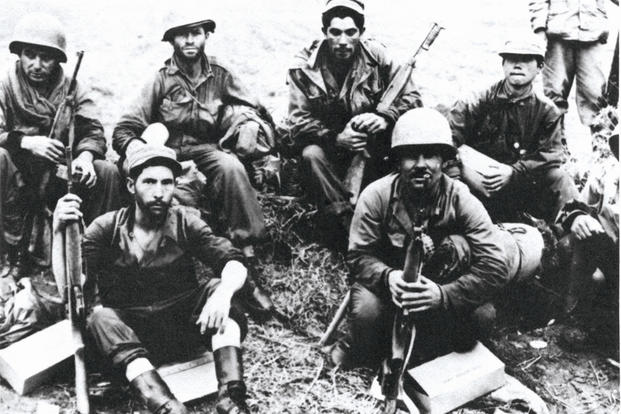The U.S. Army’s Birthday is an annual opportunity to celebrate the American Soldier and reflect on the Army’s service to the nation. However, in recent years, this commemoration has caused me to grow concerned about America’s ability to hold on to the history of our country’s oldest and largest military service. There are mounting signs that America is losing the storied legacy of the U.S. Army to the passage of time.
The first part of the Army’s history we often forget are the stories of individual Soldiers. Thirty million ordinary men and women have provided our country with extraordinary examples of Army service since 1775.
Military.com recently posted about one such Soldier whose incredible story was nearly lost forever. One hundred years ago, Ralph Moan of East Machias, Maine, left his job as a civil engineer to enlist with the Maine National Guard following the United States’ decision to enter World War I.
Private Moan, who was assigned as a mechanic with Company K, 103rd Infantry Regiment, 26th Division, spent his early months overseas training and watching the world’s first aerial dogfights. However, his service eventually took him to the front lines. On March 6, 1918, he was awakened by heavy German shelling of his dugout. Private Moan was suddenly confronted with the full reality of the war. As the article’s author described the Soldier’s next few days, “Moan hauled casualties over barbed wire entanglements and through muddy sloughs… back to the battalion aid stations, sometimes more than a mile.”
Private Moan continued to see combat throughout the summer campaigns of 1918, including the historic battle of Belleau Wood. Then, during the Meuse-Argonne offensive of September 26, Private Moan was assigned to run between lines of Allied troops to share information and coordinate attacks after communication lines were destroyed. He made several harrowing trips across exposed battlefields before being injured by a German shell. Private Moan survived the attack and was awarded the Distinguished Service Cross and French Croix de Guerre for his bravery.
The history made by Private Moan, and by every American Soldier, is the history of our nation. The Army’s legacy teaches us about the sacrifice required to win our nation’s freedom, the service necessary to maintain our independence, the advancements and innovations forged in the name of national security and humanitarian relief, and America’s responsibility as a world power. The U.S. Army has played a direct, or indirect role in nearly every significant national event since our nation’s founding. We cannot let this rich history be lost.
At the request of the Secretary of the U.S. Army, The Army Historical Foundation is carrying out a campaign to preserve and share the Army’s storied legacy by constructing the National Museum of the United States Army. The 185,000 square-foot building is currently being constructed on 84 acres at Fort Belvoir. The National Army Museum will walk visitors through the timeline of the conflicts and humanitarian missions where the U.S. Army has served, explore the evolution of our Army’s diverse force, and recount the American public’s support of the American Soldier. This long overdue tribute will be centered around Soldiers’ stories, and it will be America’s guarantee that their service is always remembered.
To date, corporations, foundations, allied nations and more than 155,000 individual donors have contributed to the project. And we continue to call on the nation for more support so we can build a museum worthy of telling the U.S. Army’s story.
The Foundation is also putting out the call to all Soldiers, Army veterans and their loved ones to help us build the Registry of the American Soldier. This is an online catalogue where those who served in the Army, or someone on their behalf, can create a profile describing the role they play in U.S. Army history. Once the museum is complete in late 2019, the Registry will be accessible for generations of visitors to come. Creating a profile is completely free. It is the Foundation’s way of enabling every Soldier to have his or her story told in the future home to Army history.
A great Army deserves a great museum. If we forget the legacy of the U.S. Army, we lose a significant piece of our collective history. Celebrate the 242nd Birthday of the U.S. Army by joining us in ensuring that the Army’s treasured past is never forgotten.
For more features on the Army's hitsory and birthday, visit the Military.com Army Birthday page.
General Gordon Sullivan is the Chairman of the Board of The Army Historical Foundation.










